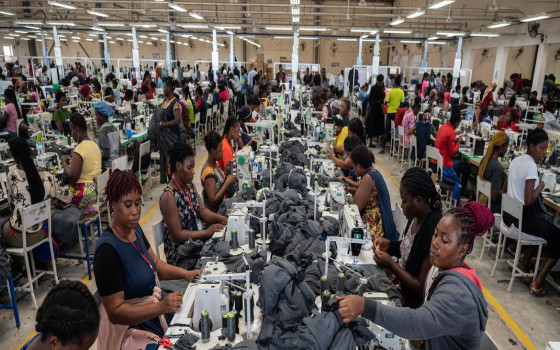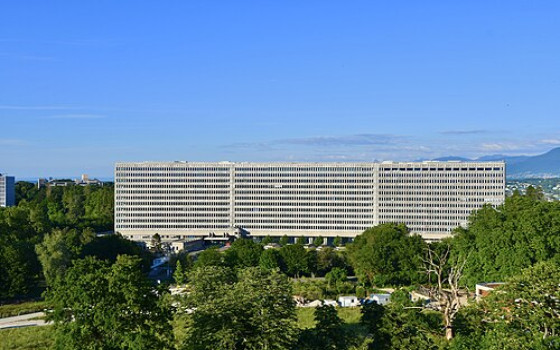ILO: 84 million jobs worldwide are threatened by escalating trade tensions, and a quarter of jobs will be affected by artificial intelligence.

- Europe and Arabs
- Thursday , 29 May 2025 9:53 AM GMT
Geneva: Europe and the Arabs
The International Labor Organization (ILO) said that 53 million jobs are expected to be created in 2025, down from the previous forecast of 60 million, representing a decline in global employment growth from 1.7 percent to 1.5 percent this year, according to the UN Daily News Bulletin, a copy of which we received Thursday morning.
The organization said that this decline—which equates to about seven million fewer additional jobs—represents a downward revision in the global economic outlook, with GDP growth expected to reach 2.8 percent, down from the previous forecast of 3.2 percent.
The organization's latest employment estimates are based on the economic growth forecasts contained in the International Monetary Fund's recently released World Economic Outlook for April 2025.
The organization estimated that nearly 84 million jobs in 71 countries directly or indirectly linked to US consumer demand are now at increased risk of disruption due to escalating trade tensions. Most of these jobs—56 million—are concentrated in the Asia-Pacific region. However, Canada and Mexico have the highest proportion of jobs at risk, at 17.1 percent.
Directional Negative Effects
ILO Director-General Gilbert F. Houngbo said the ILO report indicates that “if geopolitical tensions and trade disruptions persist, and if we do not address the underlying issues reshaping the world of work, there will almost certainly be negative ripple effects on labour markets around the world.”
The report also highlighted worrying trends in income distribution, with the share of labour income—the proportion of GDP going to workers—declining globally from 53.0 percent in 2014 to 52.4 percent in 2024. Africa and the Americas saw the largest declines.
The report further noted that between 2013 and 2023, the proportion of women employed in high-skilled occupations increased from 21.2 percent to 23.2 percent. However, it warned that occupational segregation persists, with women underrepresented in sectors such as construction and overrepresented in clerical and care roles.
The report also examines the impact of new technologies on the world of work, showing that nearly one in four workers could find their jobs impacted by generative artificial intelligence.
The Geneva-based International Labour Organization (ILO) is dedicated to promoting social justice and internationally recognized human and labor rights, pursuing its core mission that social justice is essential for global and lasting peace.
The ILO, the only tripartite United Nations agency, has brought together governments, employers, and workers from 187 member states since 1919 to set labor standards, devise policies, and implement programs that promote decent work for all women and men.














No Comments Found